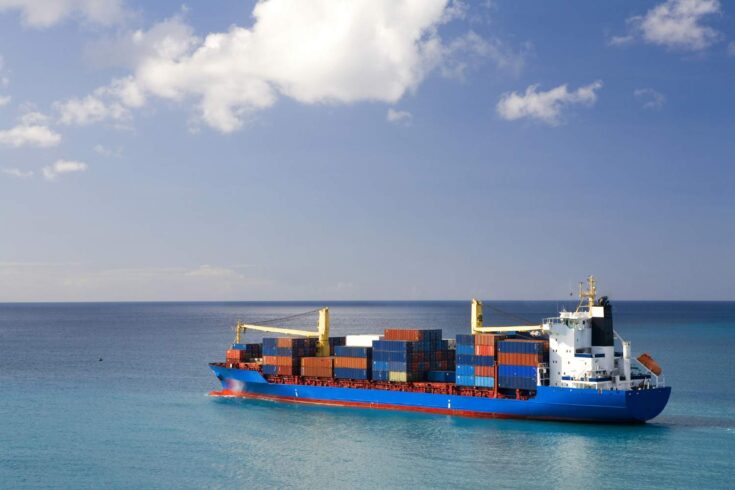Technical vessel manager Intrada Ships Management is leading a new project to investigate the potential for disruptive power technologies.
These technologies will help ship owners overcome cost and time challenges who are keen to upgrade their vessels, as well as produce valuable emissions and fuel savings.
Achieving innovation can be difficult
Short sea vessel owners are restricted in their ability to retrofit new technology due to:
- capital costs
- technical challenges
- vessel downtime
- the perception of risks to being early adopters
So, achieving innovation in the industry can be difficult. Such is the scale of the environmental challenge for the marine sector.
However, this new technology, systems and fuels are still essential and must be introduced in a way that is viable for ship builders, owners and operators alike.
About the project
Led by Intrada Ships Management, Highly Efficient Retrofitted Zero Emissions Coaster (HEROZEC) is aiming to overcome these innovation barriers by developing a modular, zero emissions solutions for short sea coasters.
This approach brings greater confidence to the market through a reduced risk of adoption and success of known operating conditions.
This will support the UK and European short sea fleets on their journey to achieving 2030 emissions targets.
The project scope
As part of the 12-month feasibility study between April 2024 and March 2025, the HEROZEC project will develop several innovations.
The project will develop a design prototype for a vessel engine powered by alternative fuels. Initially focusing on methanol but with other modular and complementary elements added into the power system.
This includes a novel gate rudder concept that reduces power requirements and fuel consumption.
The project also involves a new engine room design that provides a flexible solution for switching between methanol, electric and other future biofuel and zero carbon hydrogen-ready options.
Viable solutions
The project will explore how to offer either partial or total uptake by ship owners, as part of the modular nature of the technology, that suits different power and emissions solutions needed by different users.
The project will assess power generation in various configurations that will cover battery-backed and hybrid propulsion.
The project will also consider the viability of the methanol fuel opportunity in terms of:
- storage tanks
- production
- cargo capacity
- its supply chain in the UK
Aims and ambitions
The project’s ambitions focus on the technical feasibility of the modular system, aiming to prove the viability of the design’s elements for different vessel types, power sources and use cases.
In energy terms, the aim is to provide valuable data.
Data that confirms the ability of the novel rudder design to reduce power requirements and fuel consumptions by around a third (30% to 35%), with similar expected emissions savings too.
The impact of this is the number of generators required and the volume of methanol storage are reduced, ensuring cargo capacity is not impacted by the installation of new technology.
Future of the marine sector
While the costs associated with the real-world application of the technology are high, the project aims to showcase the readiness of the solution.
It also aims to progress the innovation to make it more accessible and open doors for future collaboration opportunities.
This is part of the wider aim of the partners to help new products come forward by technologists, maritime stakeholders and regulators all working for a common goal.
Looking at the role of regulation in innovation, Rob Millatt, Project Manager at Intrada Ships Management, said:
There needs to be a catalyst for change that encourages people to embark on greater innovation, and that can come through regulatory engagement. Rather than a simple rising tide effect around emissions compliance, regulators can support new solutions further through adaptability and by supporting testing, in order to help the industry embrace new technology that will allow the UK to keep pace on a global scale.
The funding we’ve received through this study and previous projects has really helped to unlock the opportunity to design and test the products, thereby bringing tangible results to the potential market.
Innovation is so key to the future of the marine sector in the UK, and we’ll continue to play our part through this project and beyond. Ultimately, most shipowners in the short sea will not develop new technology, so these projects are invaluable in eventually bringing new products to market to achieve the global emissions targets.
About the funding
This project is part of the Clean Maritime Demonstration Competition Round 4 (CMDC4), funded by the Department for Transport (DfT) and delivered by Innovate UK.
CMDC4 is part of DfT’s UK Shipping Office for Reducing Emissions (UK SHORE) programme, a £206 million initiative focused on developing the technology necessary to decarbonise the UK domestic maritime sector.
The programme will include a multitude of technologies including hydrogen, electric and ammonia.
This funding will place the UK among the leading nations in the development of new and innovative vessels and port infrastructure, supporting its rich maritime industry and coastal communities.

